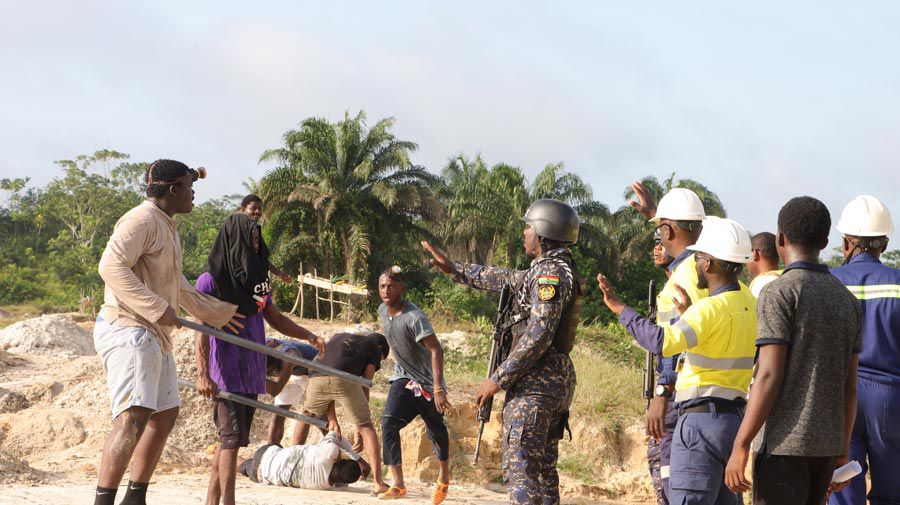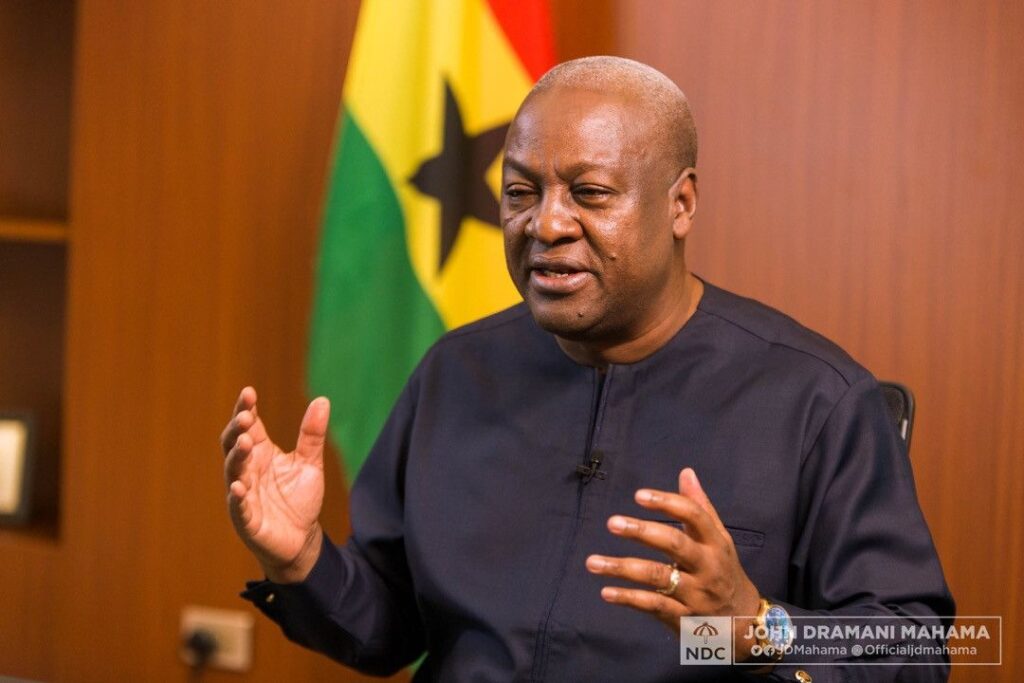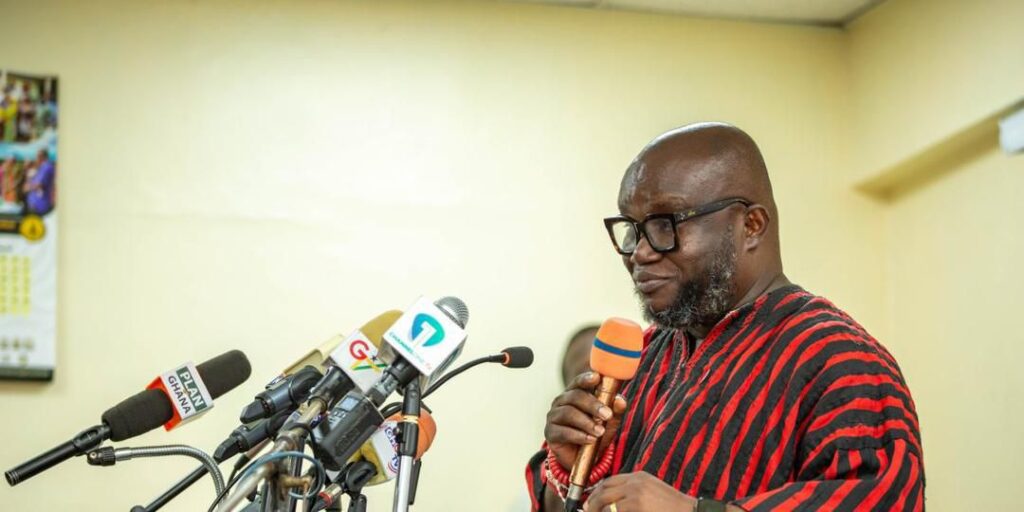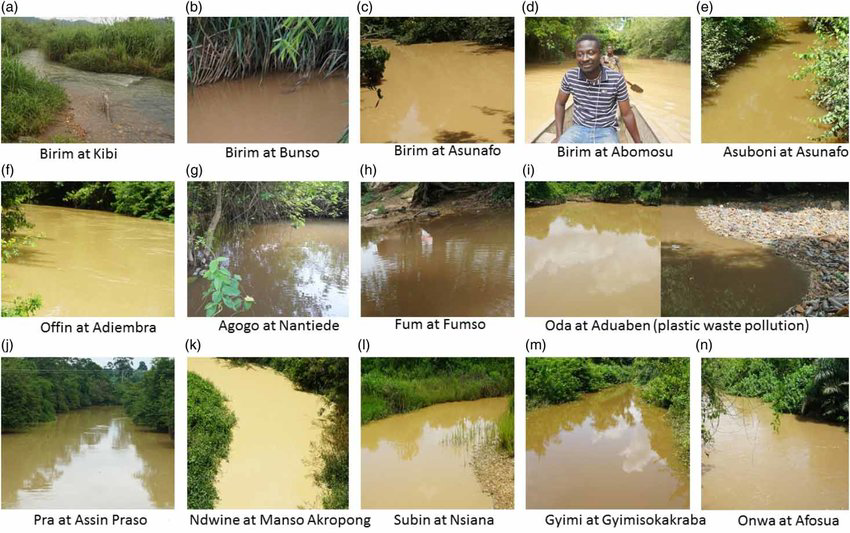Government Moves to Address Galamsey Crisis
The Government of Ghana has launched feasibility studies to restore rivers damaged by illegal mining, marking what President John Dramani Mahama described as a new phase in the fight against the galamsey crisis. The initiative aims to de-chemicalise polluted rivers, many of which have turned brown and toxic due to mercury and cyanide contamination.
Illegal mining has forced several water treatment plants to spend heavily on purification, while others, like the Kwanyarko Water Treatment Plant, have shut down entirely. President Mahama stressed that restoring rivers to their “pristine state” is now a priority for his administration.
Security Deployment Against Galamsey Crisis

While studies are underway, the government is maintaining strong security operations in affected areas. The President revealed that illegal miners had recently re-invaded the Jimirah Forest Reserve and the Anwia Effutu section of the Offinso shelter belt. Military forces, working with the private security company Nimoz, have since been deployed to secure those reserves permanently.
In addition, nearly 1,000 recruits have been trained as Blue Water Guards to patrol rivers and engage with local communities. The unit is expected to expand to 2,000 members by the end of the year, strengthening surveillance and enforcement against the galamsey crisis.
Controversy Over Declaring a State of Emergency

Despite mounting public pressure, President Mahama rejected calls to declare a state of emergency over the galamsey crisis. He argued that current laws already empower government to arrest offenders, seize mining equipment, and enforce forest protection.
“A state of emergency must be a last resort, and existing laws give us the power to act,” the President insisted during his media engagement.
GCAG Condemns Government’s Response
The Ghana Coalition Against Galamsey (GCAG) strongly disagreed, describing the President’s remarks as uninspiring and lacking urgency. In a statement issued on September 11, the coalition accused the government of downplaying what it called “unprecedented environmental terrorism.”
The group pointed out that more than 60 percent of Ghana’s rivers are already contaminated, while farmlands and forest reserves continue to vanish. They warned that the country risks losing its agricultural exports, particularly cocoa, if urgent measures are not taken.
“The President’s posture does not reflect the urgency of a national disaster,” GCAG declared.
Policing, Livelihoods, and Water Supply Concerns

GCAG also criticised the withdrawal of police units from illegal mining areas, saying law enforcement had been effective in stabilising the situation. The coalition further questioned the effectiveness of the National Alternative Employment and Livelihood Programme (NAELP), arguing that it lacks funding and cannot provide meaningful alternatives to illegal miners.
Meanwhile, the Ghana Water Company Limited reported alarming turbidity levels of 32,000 NTU at the Kwanyarko Water Treatment Plant, forcing a shutdown. This incident highlights how the galamsey crisis is directly threatening water access for thousands of Ghanaians.
Why This Story Matters

The galamsey crisis represents one of Ghana’s most pressing national challenges. Beyond environmental destruction, it is increasing water treatment costs, reducing agricultural productivity, and undermining public health. For Africa as a whole, Ghana’s response could influence how other mining nations balance small-scale mining livelihoods with environmental protection.
Looking ahead
The Ghana Coalition Against Galamsey will hold a media briefing on September 15 to outline proposed actions and intensify pressure on government. Experts caution that while feasibility studies are a step in the right direction, restoring Ghana’s rivers will require stronger enforcement, sustained funding, and long-term commitment across political administrations.
For now, the galamsey crisis remains both a warning and a test of Ghana’s resolve to protect its natural resources.
Read also: Mahama Strongly Rejects ‘Supreme Leader’ Allegations Amid Judicial Shake-Up

